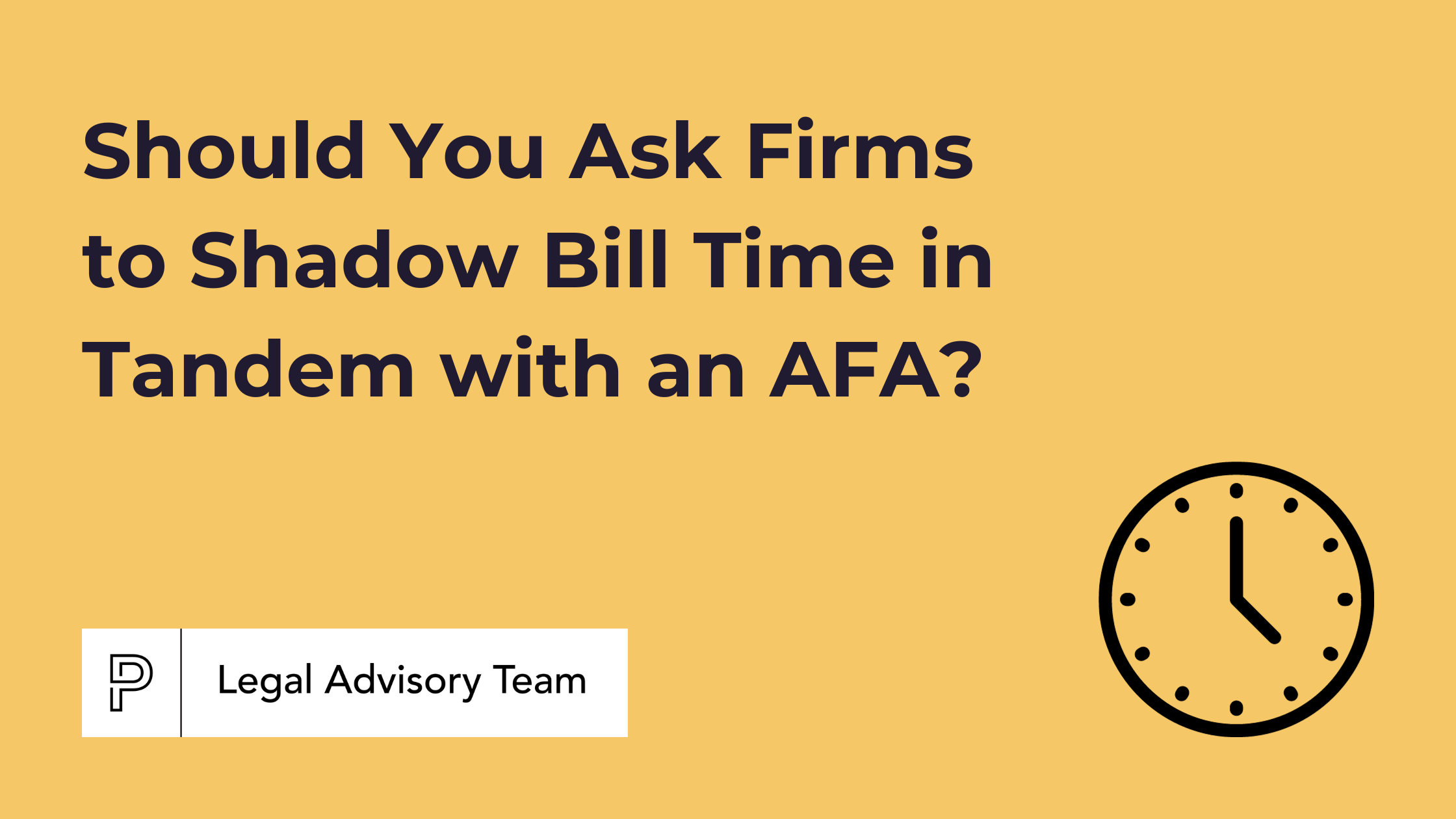
“If I use an alternative fee arrangement, how will I know I’m still paying a good price?”
When attorneys transition to using alternative fee arrangements (AFAs), they often defer to shadow billing — having their outside counsel pencil a ledger of billable hours alongside the AFA arrangement — as a means for determining whether or not they got a good price compared to traditional billing structures.
But trying to determine whether you “won or lost” on a deal is the wrong lens to evaluate the success of an AFA. To get the most out of your AFAs requires a shift in thinking about what “good” looks like. That’s why we usually discourage in-house teams who are new to using AFAs from using shadow billing to evaluate the success of their AFAs.
Here’s why.
Shadow billing prevents clients from realizing the full value of their value-based fee arrangement.
Value-based pricing changes the incentives for firms and, thereby, their service model.
Under a fixed fee arrangement, for example, firms can leverage their staffing models and other technology-enabled efficiencies to deploy their resources more efficiently. These savings (less duplication of effort, more work done by less costly junior resources) can be passed back to the client while the firm maintains or increases its profit margin.
When clients ask for shadow billing alongside their AFAs, a firm may be reluctant to deploy the most efficient strategy because the client will likely read the invoice and infer they would have paid less under an hourly billing arrangement.
Conversely, when the firm does change its service model and behavior to better leverage its resources and improve efficiencies, a shadow bill will almost always appear less expensive than the agreed-upon alternative fee arrangement.
A shadow bill is simply not an accurate representation of what you would have paid under an hourly arrangement where the firm's incentives would have been completely different.
Shadow billing wrongly keeps the focus on effort versus outcomes
Clients often think of AFAs as a zero-sum game in which one party wins. That is, they believe one party will either pay more or earn more than they would have in an hourly billing scenario — and the other side “loses” as a result.
But a good AFA is a win for both sides.
To get the most from AFAs, in-house teams and their firms must shift to an outcomes-based approach, rather than using time and hours billed as a proxy for the value they receive from the engagement.
Looking at the shadow bill suggests that the client still thinks “hours billed” equates to value rather than some other qualitative assessment — “if I get more partner effort, then I get more value.”
In practice, quality is table stakes. Law firms that do not deliver will not be hired again, which means firms must still focus on execution even where associates represent a bigger piece of the staffing pie. As long as the firm delivers a successful outcome, the client should not care what staffing mix is required to deliver it.
How DO I know I’m getting a good price from my firms?
An effective true-up should assess whether the firm provided the deliverables that you asked for at the quality expected and whether you paid the best price the market could bear for those deliverables.
Rather than resorting to shadow billing to assess the relative value of services received from your firms, it is much more helpful to establish a true market price and then let the firm manage its time the way it deems best.
Competitively sourcing your firms — like the PERSUIT platform enables — is the best way to determine that true market price.
As firms participate more often in the competitive sourcing process, in-house teams can begin to build out their resource bank for what their standard matters “should cost” in most markets.
Read more about how PERSUIT helps in-house teams competitively source their firms to drive value and improve their firm relationships.
